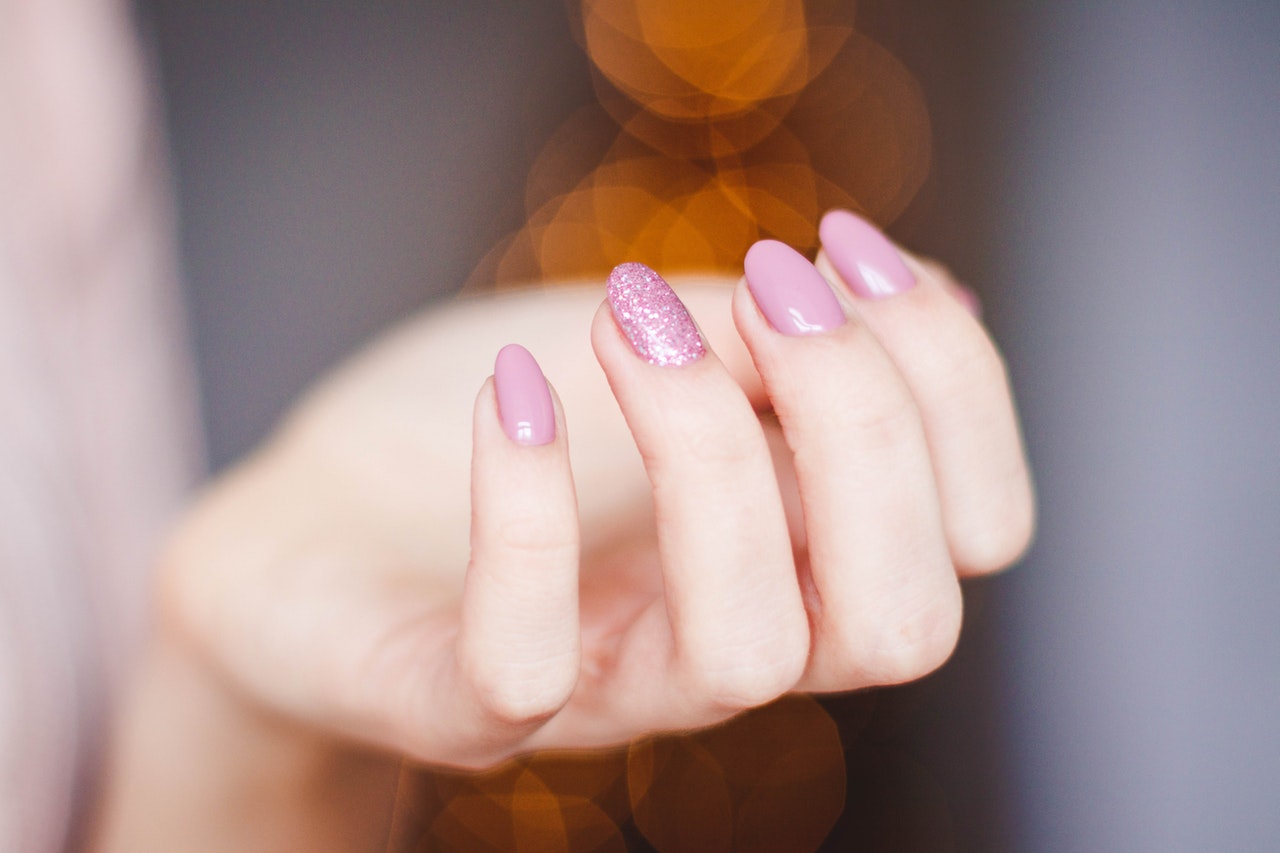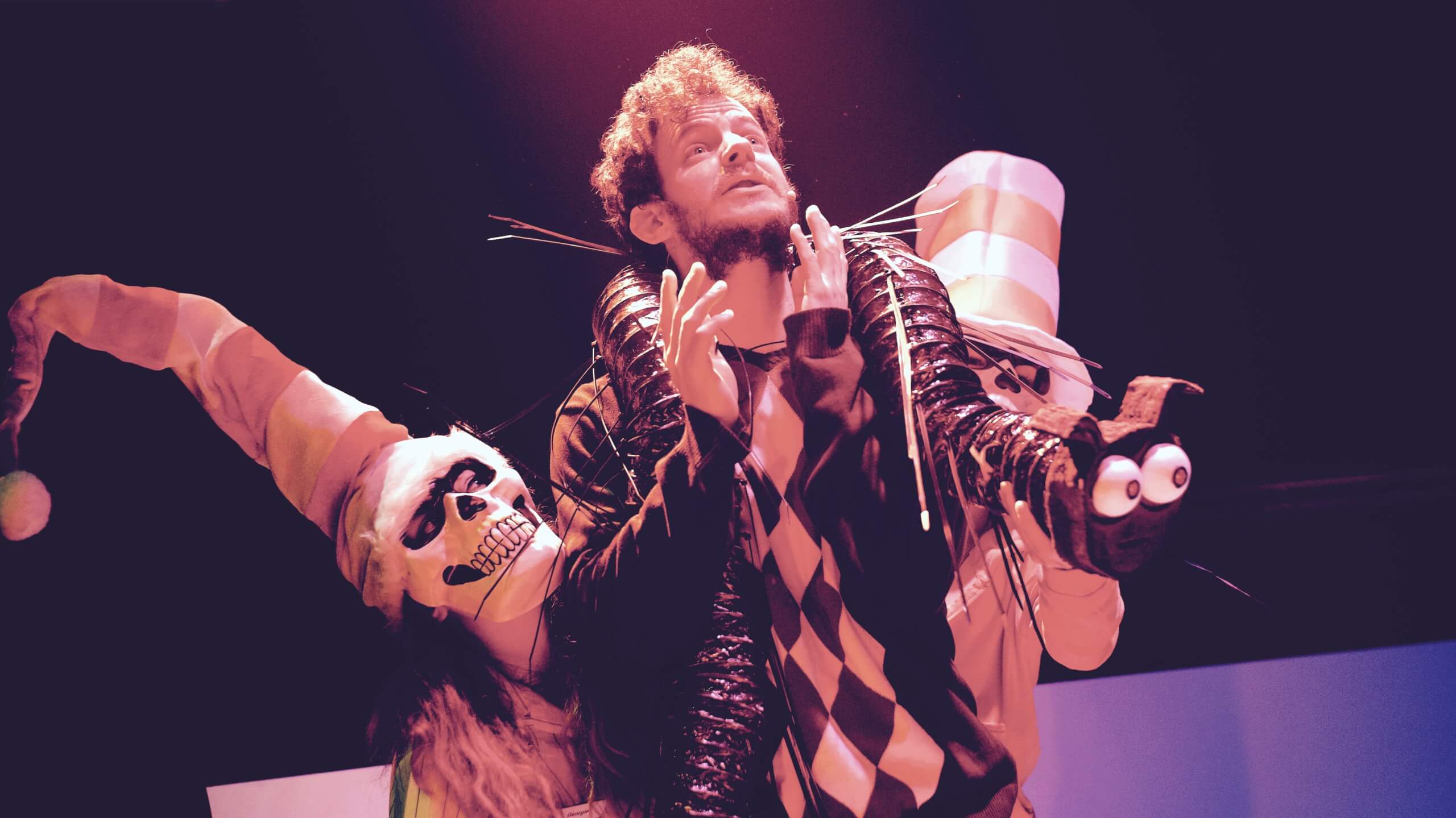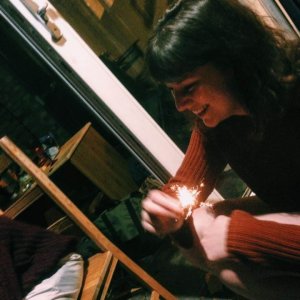About Time You Saw: Ten Storey Love Song at Edinburgh FringeBy Kate Wyver
Working class Northern voices are rarely heard on our stages. Luke Barnes places them in the spotlight in this modern adaptation of Richard Milward’s novel. It’s part riot, part play and part drug-fuelled rave.
Paul Smith directs as residents of Peach House, a tower block in Middlesbrough, rage about disappointing careers and even more disappointing sex lives. Drugs are taken like Haribo in an attempt to sweeten the bitterness they feel towards each other.
The five-strong cast of Hull-based company Middle Child paint the portrait of various inhabitants of the tower block. They focus on two well-meaning but slightly lost couples and their vile paedophilic neighbour, Alan (Matthew May). Each character is dipped in melodrama. The cast switch to minor characters -including a talking condom and multiple pigeons – with deliberate clumsiness. The focus isn’t on how slick the production is, but on allowing each character to clearly get across their grievance. This combines to make a mass of complaints that’s thrown at the audience through humour and direct address.
The characters are all damaged and vulnerable in their own ways. Bobby the Artist (Marc Graham) and Georgie (Annabel Belts) search for their meaning as Ellen (Sophie Thompson) and Johnnie (Ed Cole) search for meaningful sex.
Electronic music (by James Orvis with additional lyrics by Anna Wilson) is sung and mixed live on the squashed stage, creating the feel of an intimate house party. Euan Baker’s kaleidoscopic projections fill the back of the stage, plunging us under water and into psychedelic pools of light. Multiple conversations cross, the actors clambering on top of each other’s laps to fight for space in the cramped housing estate.
As the careers of each individual rises and falls, jealousy grows between couples. The gaps in their communication are stretched to breaking point, pushing them further and further apart. While the dilemmas of each couple are laid out with complexity, drama and wit- if with a little too much shouting- the solutions found feel too easy. The ending offers an unsatisfactory and impractical solution for dealing with bad people in society.
Energy bubbles over and in the small space it almost feels like an attack, anger boiling over working class Britain. The exaggerated characters that embrace stereotypes create humour but the production lacks the nuance needed for this show to be taken seriously. It is, however, refreshing to see the focus on those whose voices we don’t normally hear on stage in this gig-like search for art, true love and a really great orgasm.






































